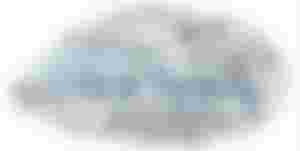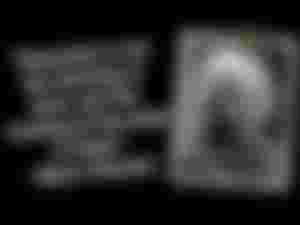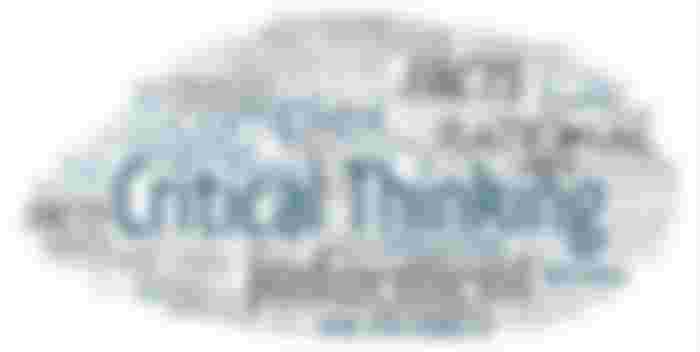Critical thinking is underused and understudied in education today. It's a particularly potent tool to argue for in the sciences, where it's most heavily used. However, the educational establishment has a bad reputation for excluding thoughts, that don't mesh with their understanding of science and knowledge. So where does that leave the rest of us?
Whether you lecture your children or talk to your friends, you have to work hard to remain in possession of your own mental faculties. But most people never learnt to properly use these faculties and are naturally prone to prejudice. While certain skills like critical thinking can seem daunting to learn, they're actually quite simple.

Why Critical Thinking Is Important
There are many ways in which you can fail to think in a critical manner. For example, if you simply go with the majority or with what seems right at the time, you're likely to go against rationality. You can also become overly attached to a position just because it's yours and that prevents you from seeing the truth.
However, the biggest and most common failure to use your critical thinking effectively occurs whenever you try to use it to understand what's happening around you. The vast majority of social situations are impossible to understand without first properly analyzing the information that's being presented to you. You need to think critically in order to make sense of the world.
Critical Thinking Starts In Children
The desire to think critically is innate in children. They begin developing it from the moment they wake up in the morning until the moment they fall asleep at night. Some children are naturally more inclined to think critically than others, it's just a matter of degree. Some parents just naturally encourage it, while others don't even realize what their children are doing.
This process of natural selection is what leads to the development of our species. Without it, we'd still be living in the trees and gathering nuts for food. The human brain has been shaped by natural selection to be a thinking organ. It's not something that we're born with, but something that we're conditioned to. It's a skill that we're born with, but it's a muscle that we must exercise if we're to have the capacity to use it.
What Does It Mean To Think Critically?
Here's a simple way to think about it: An educated mind is a well-balanced one. It's not uncommon for people to have a well-balanced mind, but an educated one.
If you have a highly-educated mind, your thoughts are likely to be well-rounded and complete. Your interpretations of the world are likely to be logical and well-supported. You are also more likely to be able to change and adapt when the need arises. You are well equipped to survive the twists and turns of life.
On the other hand, a poorly-educated mind is like a knife that's been sharpened to a point. It's very effective but dangerous and it's hard for such a mind to ever be well-rounded. It's hard for it to be able to change or adapt, because it is incapable of accepting new information.
Your mind can't take in the new and thus it severs itself from the old. Your interpretations of the world are likely to be random and without logic or evidence.
Critical Thinking Competencies For Educators

It's a little known fact, that children are actually rather easy to educate. The more you educate them, the smarter they get. The less you educate them, the stupider they get. There is a direct correlation between the quality of a child's education and the quality of their thought. This means that if you're an educator, you're also really good at thinking.
The only people who consistently think more poorly, than educators are those that have been intentionally educated. This doesn't necessarily mean, that you need to be educated to be a good educator. There are plenty of great educators, that have never even finished High School. They simply understand children better, than other people and thus they become better educators.
This is the same reason, that we value mathematicians so highly. What a child really needs is not necessarily more education, but someone to understand them. The reason that we value engineers so highly is because they are able to apply themselves to a subject in a way that a mathematician is capable of doing.
Critical Thinking Is A Way Of Life
It's only natural that the act of thinking would be an important part of your daily life. If you're not doing anything else with your time, you're probably thinking. There's a difference between having a critical mindset and being obsessed with your own thoughts. Obsession is a common symptom of a poorly-developed critical thinking skillset. You can have a critical mindset without being obsessive.
However, it's also important to exercise your other mental capacities, so that you don't become a complete imbecile. Memory, for example, is a very important mental function. Without it, you could not retain any knowledge, that you come across. You could not apply it to new situations. Music is another very important mental function. Listening to music and especially creating your own, can be a very therapeutic activity.
The point is, you need to develop a balanced mental life if you want to succeed in the real world. You have plenty of time to develop your other mental functions; you aren't in a race against someone else. You simply need to set your own personal priorities and then work on developing your weaker areas. The first step in developing your mental functions is understanding where your mental functions come from.
The most important one for you, of course, is your brain. Your brain is the organ, that interprets sensory information and creates thoughts and memories based on that information. You need a healthy brain in order to think clearly and make good decisions.

Lead image source: https://www.ivtnetwork.com/article/critical-thinking-1-why-pharmaceuticals-and-healthcare-needs-more-critical-thinkers





Peter, haven't you noticed that kids with so much technology, instead of being smarter, sometimes become extremely gross about everything else? It is that they focus their attention on only specific things, and the problems begin.